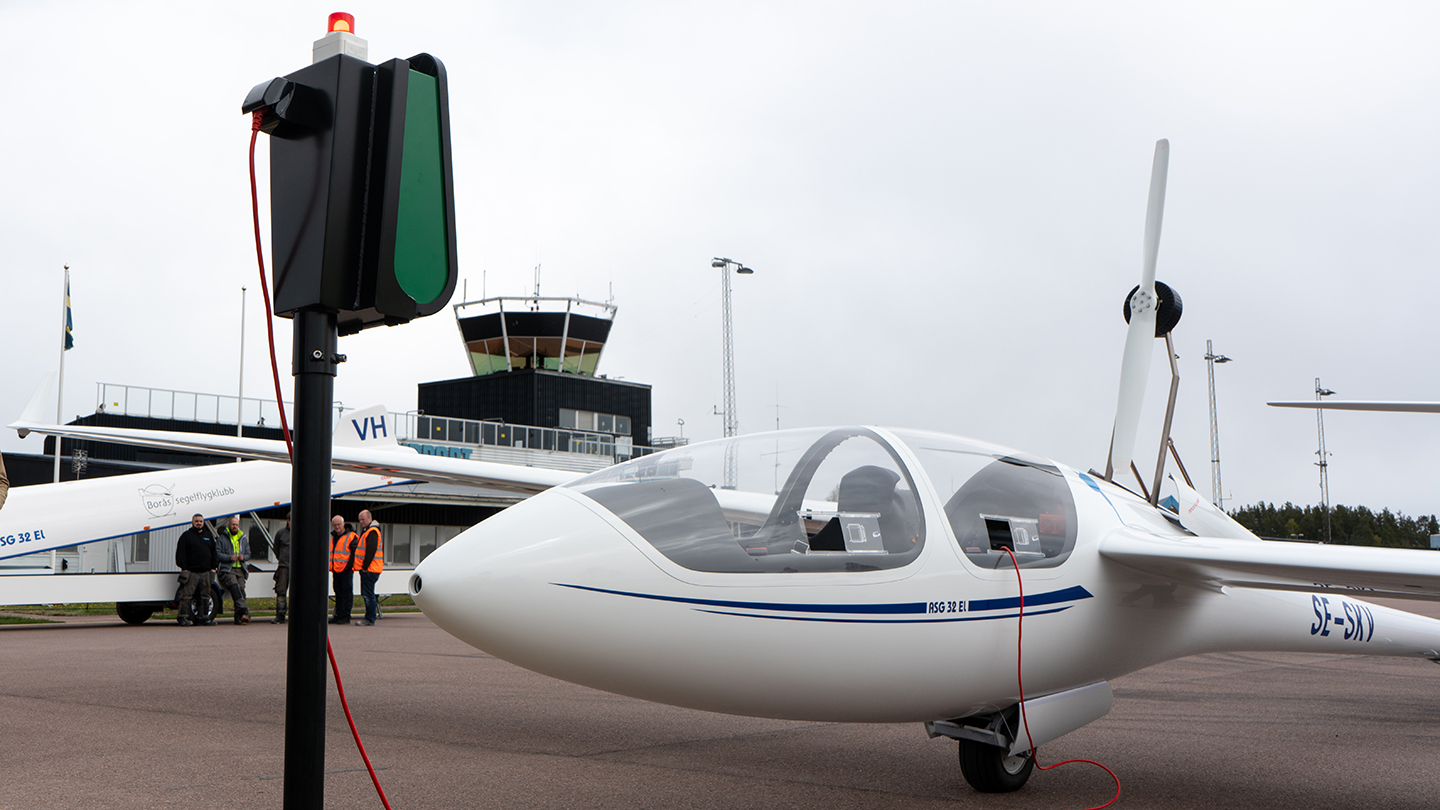Dala Airport in Dalarna, Sweden, is a regional airport opened in 1913. Fast forward to 2020 and it is still a busy hub for internal flights. Today (15 May 2020), Dala Airport has taken an important step in its development, with the unveiling of Dalarna's first charging stations for electric aircraft.
Backed by the Swedish Environmental Protection Agency, Dala Airport has been granted financial support through a climate change initiative, launched to fund regional projects that can help reduce carbon dioxide emissions. Today saw three charging stations for electric aircraft unveiled at Dala Airport in Borlänge, enabling electrified passenger flights to land and charge their batteries at the airport. The charging solution has been designed and installed by Swedish company Hybrida E-mobility, in collaboration with CTEK.
“The aviation industry is facing a major change. Just like the automotive industry, it needs to reduce emissions, and electrification of aircraft is expected to be a major part of this approach. Today, we see a small step towards this, as Dalaflyget pioneers electrical airport charging and demonstrates its commitment to sustainable flights. They are one of the first airports in Sweden to make this commitment that will no-doubt drive future development of this rapidly changing industry.” says Jonas Anderson, Nordic Sales Manager at CTEK, who developed the charging stations together with Hybrida E-Mobility.
Sustainable flight is considered crucial to the development of the Dalarna region. Earlier in the spring, the municipalities of Borlänge, Mora and Falun agreed to collectively support the development of infrastructure for electric aircraft at their airports. This is to ensure environmentally sustainable air travel for the region's business and tourism industries.
“Electric and hybrid-electric propulsion is rapidly revolutionising mobility technologies across industries, and the aviation industry is no exception. Here at CTEK we are delighted to be part of this project that will shape the future of the aviation industry.” continued Jonas Anderson.

